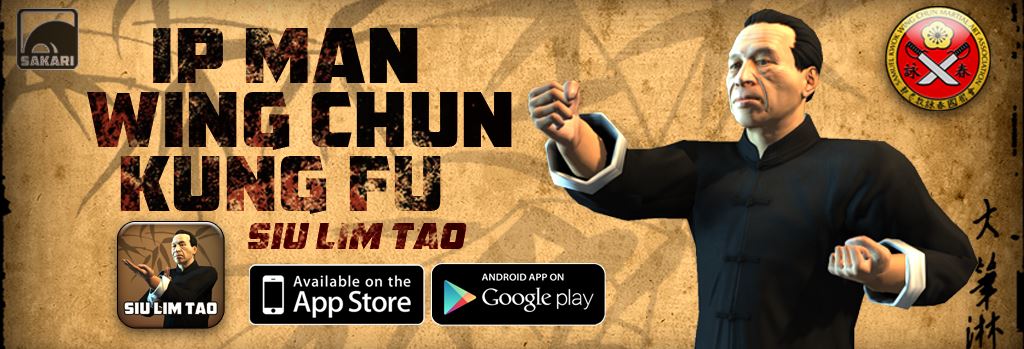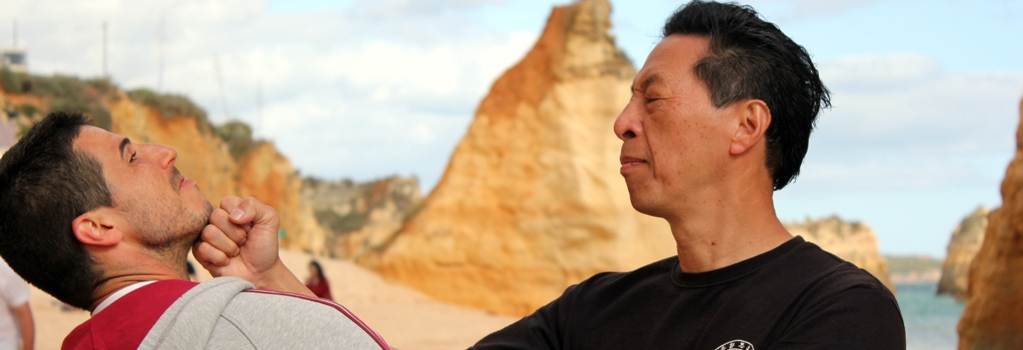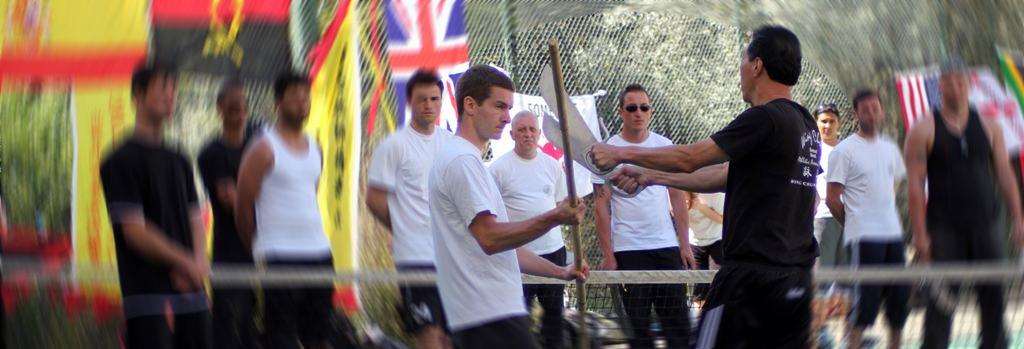Ip Man's Wing Chun
Article by Dan Knight added on 11 Jul 2012. Last updated on 16 Dec 2012.
Ip Man Biography
The life of the martial arts legend
Learn about the life of the martial arts legend who has influenced millions of martial artists around the world including many famous martial artists like the late Bruce Lee. Please note, this article is similar to the one on Wikipedia because that was largely written by myself as well.
Ip Man's Birth
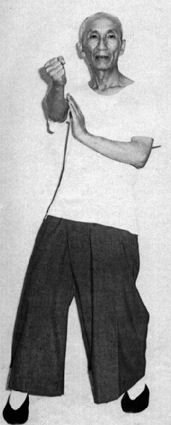
Ip man is often referred to as Yip Man. He was born on the first of October, 1893 and died on the second of December, 1972.
Ip Kai Man was one of the first martial arts instructors, or Sifu, to teach the Chinese martial art of Wing Chun Kung Fu openly. He had several students who later became martial arts teachers in their own right, including Bruce Lee. He was born to Yip Oi Dor and Ng Shui, and was the third of four children. He grew up in a very wealthy family in Foshan, Guangdong province, and received an exceptionally high standard of education. His older brother was Ip Kai Gak. His older sister was Ip Wan Mei and his younger sister was Ip Wan Hum. Ip is the family name which is said first in Chinese culture.
Biography
When Ip Man was thirteen years old he started learning Wing Chun from Chan Wah-shun. Because of his sifu's old age, Ip Man had to learn much of his skills and techniques from his master's second eldest disciple Ng Chung-sok. Three years into Ip Man's training Chan Wah-shun died. One of his dying wishes was to have Ng continue training Ip.
At the age of 15 Ip man moved to Hong Kong with help from Leung Fut Ting, a relative. At age sixteen, Ip Man attended school at St. Stephen's College in Hong Kong. It was a secondary school for wealthy families and foreigners who lived in Hong Kong. According to Ip Man's two sons (Ip Ching and Ip Chun), while at St. Stephen's Ip Man intervened after seeing a foreign police officer beating a woman. The story goes that the police officer tried to strike Ip Man who used his martial arts to strike the officer down, at which point Ip Man and his classmate ran to school. The classmate is said to have told an older man who lived in the same apartment block. Ip Man was invited to see this man and the man asked Ip Man what martial art he studied. Ip told him, but said he would not understand. The man then asked Ip Man to show him his first 2 forms (Sil Lim Tao and Chun Kiu). The man then told Ip Man that his forms were "not too great." Ip Man was then invited to Chi Sau (a form of training that involves controlled attack and defence). Ip Man saw this as an opportunity to prove his Kung Fu was good, but he was beaten after just a few strikes. It turned out that the old man was his master's elder fellow-disciple (and so, by Chinese tradition Ip Man's martial uncle or Sibak), Leung Bik , son of his master's master Leung Jan . After that encounter, Ip Man continued his training lessons from Leung Bik. By the age of 24, Ip Man had returned to Foshan, his Wing Chun skills tremendously improved.
In Foshan, Ip Man became a policeman. He did not formally run a Wing Chun school, but taught several of his subordinates, his friends and relatives.
Kwok Fu and Lun Kai (2 of Ip Man's students and friends) went on to teach students of their own. The art of Wing Chun in the Foshan and Guangdong area was mainly passed down from these two individuals.
Ip Man went to Kwok Fu's village house during the Japanese Occupation. He only returned to Foshan after the war, to once again take up the job of a police officer. At the end of 1949, the Chinese Communist party won the Chinese civil war. Ip Man being an officer of the opposing Kuomintang political party, decided to escape to Hong Kong without his family when the Communists had come to Foshan. In Hong Kong, Ip Man opened a Wing Chun martial arts school.
Initially, business was poor because his students typically stayed for only a couple of months. He moved his school twice, to Hoi Tan Street in Sham Shui Po, and then to Lee Tat Street in Yau Ma Tei. By then, some of his students were skilled enough that they were able to start their own schools.
Some of Ip Man's students and descendants compared their skills with other martial artists in combat. Their victories over other martial artists helped to bolster Ip Man's reputation as a teacher.
In 1967, Ip Man and some of his students established the Hong Kong Ving Tsun Athletic Association.
In 1972, Ip Man suffered cancer and subsequently died on the 2nd of December that same year. About 6 weeks before he died he asked his 2 sons and his student Lau Hon Lam to film him performing the Wing Chun system as practice by him. He only managed Sil Lim Tau, Chum Kiu and the Dummy form. This is because he was in a lot of pain and was weak and unsteady on his feet. He was going to do Biu Gee, the Knife form and long pole. However Grandmaster Ip Chun and Ip Ching and Sifu Lau Hong Lam stopped Ip Man because Biu Gee, the knives and full pole form require a lot of energy to perform. Ip Man had many students and worried some of them were adapting the system due to their own incomplete knowledge and felt that filming it was the only way to stop the frauds and cheats.
Photos related to Ip Man
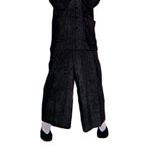
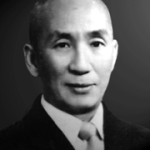
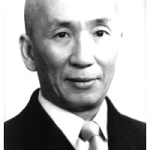
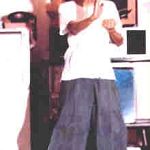
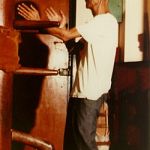
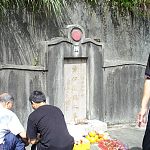
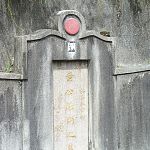
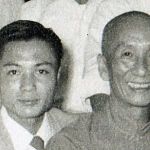
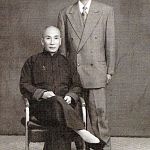
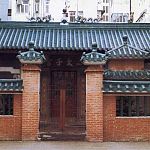
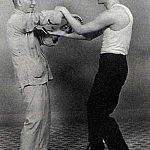
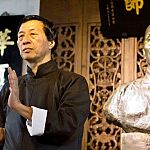
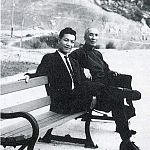
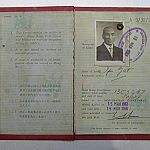
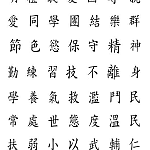
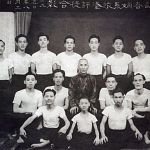
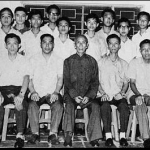
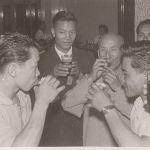
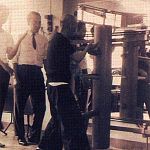
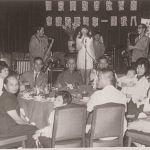
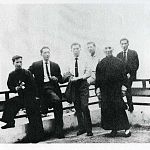
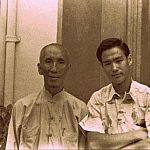
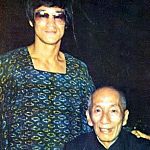
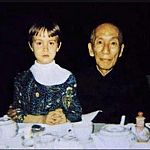
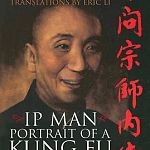
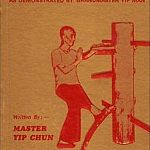
Ip Man Wing Chun Forms on video
Ip Man shows Wing Chun's Chum Kiu form as filmed in 1972
Within the three decades of his career in Hong Kong, he established a training system for Wing Chun that eventually spread across the world.
Sub categories for Ip Man's Wing Chun
Ip Man's Intelligence
An article by Master Sam kwok about Ip Man's intelligence as published in the straight punch section of masters mag.
Ip Man's Biography
Learn about the life of the martial arts legend who has influenced millions of martial artists around the world including many famous martial artists like the late Bruce Lee.
Ip Man or Yip Man
You will often see people referring to the late grandmaster of Wing Chun as both Yip Man and Ip Man. So which spelling is right?
Wing Chun Code of Conduct
Ip Man's Code of conduct for students of the martial art of Wing Chun,
Ip Man and his teachings
Many students have said there Wing Chun has come direct from Ip Man and some say that they were his senior student or indoor disciple. Being political about Wing Chun was something Ip Man would not even consider within his world of Kung Fu.
About Ip Chun in Chinese
An extract from Master Kwoks private collection, it was written about Ip Man by his eldest son Ip Chun.
Wing Chun Kuen Kuit
The Kuen Kuit Chops of Wing Chun Kung Fu. Part of the legacy Ip Man left behind was the set of chops he commissioned his student Moy Yat to make.
Ip Man Tong Wing Chun Museum
An article on the demonstration that helped promot the Ip Man Tong or Wing Chun museum that is in Foushan China.
A Chronicle of the life of Ip Man
A Chronicle of the Life of Ip (Yip) Man By Ip (Yip) Chun Translated by Master Samual Kwok.
My Father Ip Man
This article by Grandmaster Ip Ching talks about the life of Martial arts legend Ip Man as told by his son Wing Chun Kung Fu Grandmaster Ip Ching.
Interview with Grandmaster Yip Man
The Following interview comes from an old issue of Hong Kong New Martial Hero magazine – it is one of the two ever published interviews with Yip Man sifu.
Tags for this article:
Ip ManBruce LeeWing ChunKung Fu

